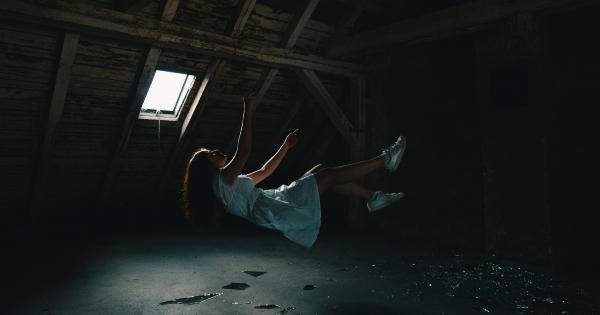Have you ever experienced the sensation of falling right before you fall asleep? You might feel like you are falling off the edge of a cliff or rapidly descending in an elevator.
This sudden and unexpected sensation can be startling and sometimes jolts you awake. But what is the cause behind this mysterious phenomenon? In this article, we will discuss the various factors that contribute to this falling sensation.
Sleep Myoclonus
Sleep myoclonus, also known as hypnic jerks, is a common cause of the falling sensation. This is an involuntary muscle twitch that occurs during the transition from wakefulness to sleep.
The twitch is caused by a sudden muscle contraction followed by muscle relaxation. It usually lasts only a moment, but some people may experience a series of twitches for a few seconds before falling asleep.
Sleep myoclonus can be triggered by various factors, including anxiety, caffeine intake, and intense physical activities. It is also more common in people who have irregular sleep patterns or who do not get enough sleep.
Several studies have suggested that sleep myoclonus may be a result of the brain misinterpreting the muscle relaxation that occurs during the onset of sleep as a signal of falling, which results in a jerk or twitch.
Hypnagogic Hallucinations
Hypnagogic hallucinations are another common cause of the falling sensation. These are vivid and often scary hallucinations that occur during the transition from wakefulness to sleep.
They can take various forms, including visual, auditory, and tactile hallucinations. The sensation of falling, along with the feeling of weightlessness, is a common theme in hypnagogic hallucinations.
Hypnagogic hallucinations can be triggered by various factors, including stress, anxiety, and sleep deprivation. They are also more common in people who have a history of sleep disorders such as narcolepsy and sleep apnea.
It is thought that hypnagogic hallucinations occur when the brain is unable to differentiate between dream images and reality.
Anxiety and Stress
Anxiety and stress can also contribute to the falling sensation. When you are anxious or stressed, your body tends to be in a state of heightened awareness, making it more sensitive to any sudden changes.
This can make you more likely to startle awake from the falling sensation.
Anxiety and stress can also interfere with your ability to fall asleep and stay asleep. This can result in the brain being in a state of hyperarousal, making it more sensitive to any signals of falling.
Caffeine and Alcohol
Caffeine and alcohol are known to disrupt sleep patterns and can contribute to the falling sensation. Caffeine is a stimulant that can keep you awake, heightening your awareness to any sudden changes in your surroundings.
Similarly, alcohol can also disrupt sleep by interfering with the body’s natural sleep patterns. While alcohol might make you feel sleepy, it can actually cause shallow sleep and frequent awakenings.
Medications
Some medications can also contribute to the falling sensation. Certain types of antidepressants, antipsychotics, and antihistamines can cause muscle twitches and jerks, which can contribute to the feeling of falling.
Additionally, some medications can cause drowsiness, making it more likely for you to experience hypnagogic hallucinations or other falling sensations.
Sleep Position
Your sleep position can also affect whether you experience the falling sensation. People who sleep on their backs are more likely to experience sleep paralysis and hypnagogic hallucinations, which can contribute to the falling sensation.
Sleeping on your stomach or side may reduce the likelihood of experiencing these sensations.
Psychological Factors
Lastly, the falling sensation may be caused by psychological factors, including unresolved emotional issues, traumatic events, and anxiety disorders.
People with anxiety disorders, such as panic disorder and generalized anxiety disorder, may be more prone to experiencing hypnagogic hallucinations and the falling sensation. Additionally, people who have experienced traumatic events may be more likely to have vivid and disturbing hypnagogic hallucinations.
Conclusion
The falling sensation that many of us experience just as we are falling asleep may be caused by various factors, including sleep myoclonus, hypnagogic hallucinations, anxiety and stress, caffeine and alcohol, medications, sleep position, and psychological factors. While it can be a startling and unsettling experience, it is usually harmless.
If you’re experiencing the falling sensation regularly and it’s affecting your sleep quality, seeking advice from a healthcare professional can help you identify and address any underlying issues.





























